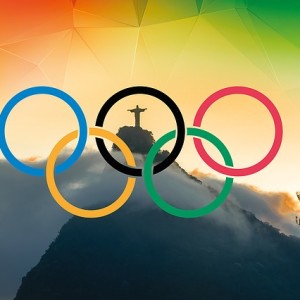
Unless your company is an official Olympic sponsor or partner, you may wish to reconsider using the Olympics as a marketing vehicle – or at least be extremely careful.
The International Olympic Committee (IOC) considers use of any names, logos or images associated with the Olympics by anyone other than approved sponsors and partners ambush marketing.
Ambush Marketing Techniques
In ambush marketing, a company associates its products or services with a major event without paying the fees to become an official sponsor or partner. Such illicit use typically includes the event’s name or symbol in the PR, advertising or marketing materials without permission. Businesses might also physically interject their brand name into the event through stunts like flying a plane or blimp over a sports stadium.
While seemingly harmless, the practice diminishes the value of corporate event sponsorships. Olympic organizers look unkindly on the practice and strive to squash it – and the law is on their side.
Only the United States Olympic Committee and International Olympic Committee can legally license the use of the Olympic trademarks and slogans and other intellectual property. “The USOC is a Federal Government Chartered Corporation. It is as fearsome as it sounds and has the teeth to protect its property,” warns Jennifer Hibbs, a vice president marketing agency Marden-Kane.
Brand Protection Guidelines
The Rio 2016 Organising Committee’s Brand Protection Guidelines for PR, marketing and advertising people says it seeks to “preserve the emotional and commercial value” of official sponsors of the regular as well as Paralympics. It maintains “a broad monitoring and prevention program against ambush marketing and the sale of non-official products and tickets.”
Its 54-page document explains what you cannot do and provides examples. Avoid including images of the Olympic torch and of course those rings in your PR and marketing content. “You can’t promote that your brand’s spokesperson is an Olympic athlete. You can’t even do a simple sweeps to give away tickets to the Olympics and say, ‘Enter for a chance to win a trip to Rio in 2016!’” Hibbs says.
Cease and Desist Orders
Businesses that ignore the Olympic Committee rules are likely to receive an unpleasant cease and desist letter or worse.
“Hundreds of cases exist where cease and desist orders have been sent to immediately halt any unauthorized use,” Hibbs says. “Many of these have been accompanied by lawsuits where infringement of Olympic symbols has occurred.”
If you do receive a cease and desist order, don’t ignore it, warns Nicole Vidinu, a Canadian legal expert. Note the letter’s deadline for response and seek legal advice to assess your options.
Better yet, avoid any activity that could prompt the Olympic Committee to go after you.
Bottom Line: Businesses that cite the 2016 summer Olympics in their PR, marketing or advertising materials face serious legal dangers. Olympic organizers indicate they will be vigilant about protecting their approved partners and sponsors against ambush marketing. Legal experts urge caution if you plan to refer to the Olympics in your promotions.
This article was previously published on the CyberAlert blog.